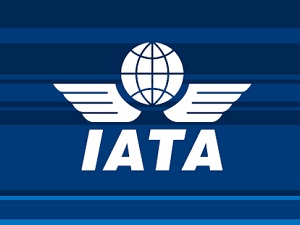
This compared to $7.6 billion in profits made last year and was an improvement on a March forecast of $10.6 billion.
If confirmed, it would make 2013 the industry’s third-best year since 2001.
But IATA head Tony Tyler said business was “still tough” and noted that airlines were operating with a 1.8-percent profit margin.
This was a “four dollar profit per passenger, less than the price of a sandwich in most parts of the world,” he told the global airline body’s annual general meeting.
Fuel costs had increased by 55 percent since 2006 and airlines were flying against considerable economic headwinds, he complained.
“Generating even these small profits under current conditions is a major achievement,” said Tyler, presenting the group’s outlook.
Asia-Pacific is the world’s strongest-performing region with a $4.6 billion profit on the horizon, up from an expected $4.2 billion, mostly driven by China and long haul markets.
In second slot is North America which is set to post $4.4 billion instead of $3.6 billion, and a significant rosier looking Europe is set to double its profit to $1.6 billion.
But the region’s profit margin is set to rise to just 1.3 percent—second from the bottom after Africa’s 0.9 percent.
The Middle East is forecast to deliver a profit of $1.5 billion, and Latin America $600 million.
While Africa is the weakest region with just $100 million of profit looming, this would be a turn-around on the $100 million loss posted last year.
IATA estimated airlines would carry some 3.1 billion people this year— rising above the three billion mark for the first time—and transport more than 52 million tonnes of cargo which it said was basically stagnant.
Load factor was set to hit record levels of 80.3 percent, while airlines are growing non-ticket income from add-on services such as sales of food on board.
Speaking at a news conference, Tyler said it was “a time for some optimism” but that this was not without reservation.
“This is still a tough business with very poor returns. The constant challenge to keep revenues ahead of costs hasn’t become any easier,” he said.
“Let’s be clear that a 1.8 percent net profit margin is an improvement but it isn’t satisfactory,” he said.
Airlines posted 2.9 percent profit margin in 2007 and 3.3 percent in 2010.
“But the outlook is telling us that airlines have made fundamental adjustments to their businesses in order to generate profits,” said Tyler.
This was against expected oil prices of $108 per barrel, a slight dip from last year but nearly double 2006 figures, and a weak global growth forecast of 2.2 percent this year.
Ancillary revenues were a strong performer. These had grown from $2.5 billion six years ago, accounting 0.5 percent of total revenue, to $36 billion this year which was more than five percent of revenue.
IATA represents airlines that account for 84 percent of the world’s airline traffic.—Justine Gerardy